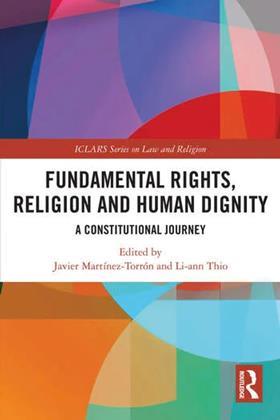Fundamental Rights, Religion and Human Dignity: A Constitutional Journey
Edited by Javier Martínez-Torrón and Li-ann Thio
£135, Routledge
★★★★✩
Dignity and human rights are often considered closely related. It is not accidental that ‘dignity’ appears in the first Article of the Universal Declaration of Human Rights; it is not coincidental that UK courts have acknowledged dignity as the core value of western society, the European Convention on Human Rights and common law. Freedom of religion, too, has deep roots. One of the few extant clauses of Magna Carta deals with the church’s freedom. Archbishop Thomas Becket was murdered in Canterbury Cathedral for defending the same liberty; John Locke demanded religious tolerance in the 17th century.
Dignity has a more positive image today. The western conception sees dignity as part of individual autonomy and a desirable thing. Religion, however, seems equated in the popular mind with intolerance and restrictions on freedoms. This book explores the interaction between the two in constitutional law.
The work is separated into two sections, broadly covering the dialogue between ‘dignity’, ‘freedom of religion’ and constitutionalism, and the balancing of freedom of religion with other fundamental rights.

An overarching theme of the book links to legal scholar Adrian Vermeule’s work on the ‘classical constitution’, in opposition to the ‘progressive constitution’. The latter emphasises individual autonomy and acts by declaring what the state cannot do. In contrast, Vermuele’s ‘Common Good Constitutionalism’ imposes on the state a duty to promote those things that benefit human flourishing, such as justice, peace, prosperity, morality and dignity. How we understand dignity – and this work makes a valiant effort at providing a definition – obviously has significance for our understanding of the Common Good.
The balance between religious freedom and other fundamental rights provides a thought-provoking concluding section. The work is particularly good on the interaction between hate speech and religion at the European Court of Human Rights – where religion has been seen as both a victim and a perpetrator – and between freedom of religion and equality law, particularly in the field of sexual orientation and gender identity, where secular and religious thought often clash head-on.
A fascinating work, covering two controversial areas. It provides a solid overview of the field, although with a more academic than practical slant.
James E Hurford is a solicitor at the Government Legal Department, London






























